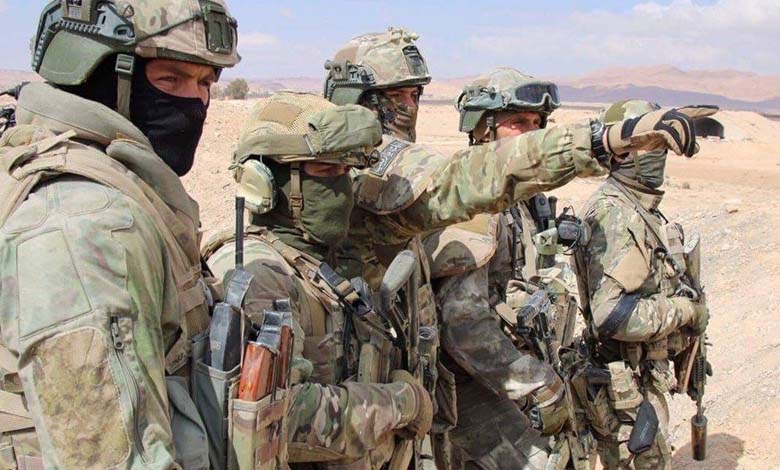Wagner Group: Russia’s new headache in the Middle East – Attempts to halt operations in Syria and Libya

Wagner Group remains a new headache for Russia in the Middle East Thousands of Russian Wagner Group members continue their military operations in Syria and Libya despite legislative and unofficial demands from the Russian Ministry of Defense to bring them under agency control, which has angered the Russian military.
New activity
According to the American website “The Monitor,” Telegram channels affiliated with the Wagner Group are filled with new photos of group fighters “in a raid,” “in convoys,” or “descending from helicopters.” For example, Wagner actively participates in combat operations alongside the Malian armed forces in clashes with the Azawad Liberation Movement in the Gao region. Over the past few weeks, two Wagner Mi-8 helicopters and an An-26 transport plane suddenly crashed in Mali and the Central African Republic, further raising doubts about the group’s position with the Kremlin.
In the Central African Republic, the body of one of the Wagner Group members fell into the hands of a rebel group known as the Return, Rehabilitation, and Reintegration (3R), even without Brigozin, Dmitry Outkin, and Valery Chekalov, who were responsible for combat training and logistics and died in a plane crash on August 23. Wagner is still actively involved in the conflict.
Russian efforts
The American website explained that Russian Deputy Defense Minister Yunus-bek Yevkurov’s diplomatic activity, who visited Wagner’s operational areas in Syria, Libya, Bamako, Mali, Burkina Faso, and the Central African Republic late last month, was not as harmful to Wagner as his Russian counterpart’s tone. The famous conversation with Brigozin during the rebellion.
As far as can be judged through open-source data sources, Russian Deputy Defense Minister Yunus-bek Yevkurov is persuading African authorities to reject direct cooperation with Wagner. In return, official support and technical military cooperation are offered, along with private military companies directly linked to Russian military intelligence.
According to what has been reported, the Russian Army is still considering allowing Wagner soldiers to move to another private military company, Redut, which is working to expand its presence in Syria and initiate work in Libya and Mali. However, this conflicts with the wishes of the Russian Ministry of Defense, as they do not rush to withdraw Russian mercenaries.
A Russian military source stated, “The issue of Wagner’s presence in Syria and Libya is extremely sensitive, and the Russian Ministry of Defense is intensifying efforts to resolve this issue as soon as possible. There are many problems associated with this, such as the ban imposed by Russian agencies on using the Hmeimim Syrian airbase as a transit center and conflicts like those that occurred in mid-September. Also, the Russian authorities have asked their ally, the Syrian government, to reject cooperation with Wagner following the rebellion.”
In the period from September 11 to 12 in Homs, Syria, Russian Air Force nearly shot down a military transport plane belonging to Wagner while it was on its way to landing at the T4 airport. In addition to Russian service members, the plane also carried over 100 Syrian mercenaries recruited by Wagner to fight alongside Haftar.
According to a source familiar with Wagner, Brigozin tried to expand the fleet of aircraft independent of the Ministry of Defense and made several purchases during the Ukrainian campaign.
Telegram channels affiliated with Wagner reported that the situation was managed through negotiations between Yevkurov and the mercenaries who threatened to strike a non-official Russian military facility in Libya. However, the Syrian government, which was asked by Moscow not to assist Wagner in logistics services, has allowed mercenaries access to the T4 airport, recently used by Iranians.
More complex in Syria
The American website explained that while Wagner’s backbone can still maneuver in Africa, the situation in Syria is more complicated due to the presence of official forces and Wagner’s involvement in oil and gas production, according to a source from “The Monitor” with ties to the Russian diplomatic corps.
According to sources close to Brigozin’s former structures, Moscow promised Syrians to drop their debts to the Wagner company if the group leaves and is replaced by the Redut company. However, Damascus still fears disruption of work, and these fears have increased since companies affiliated with Stroytransgaz Construction have reportedly reduced their activities in Syria.












